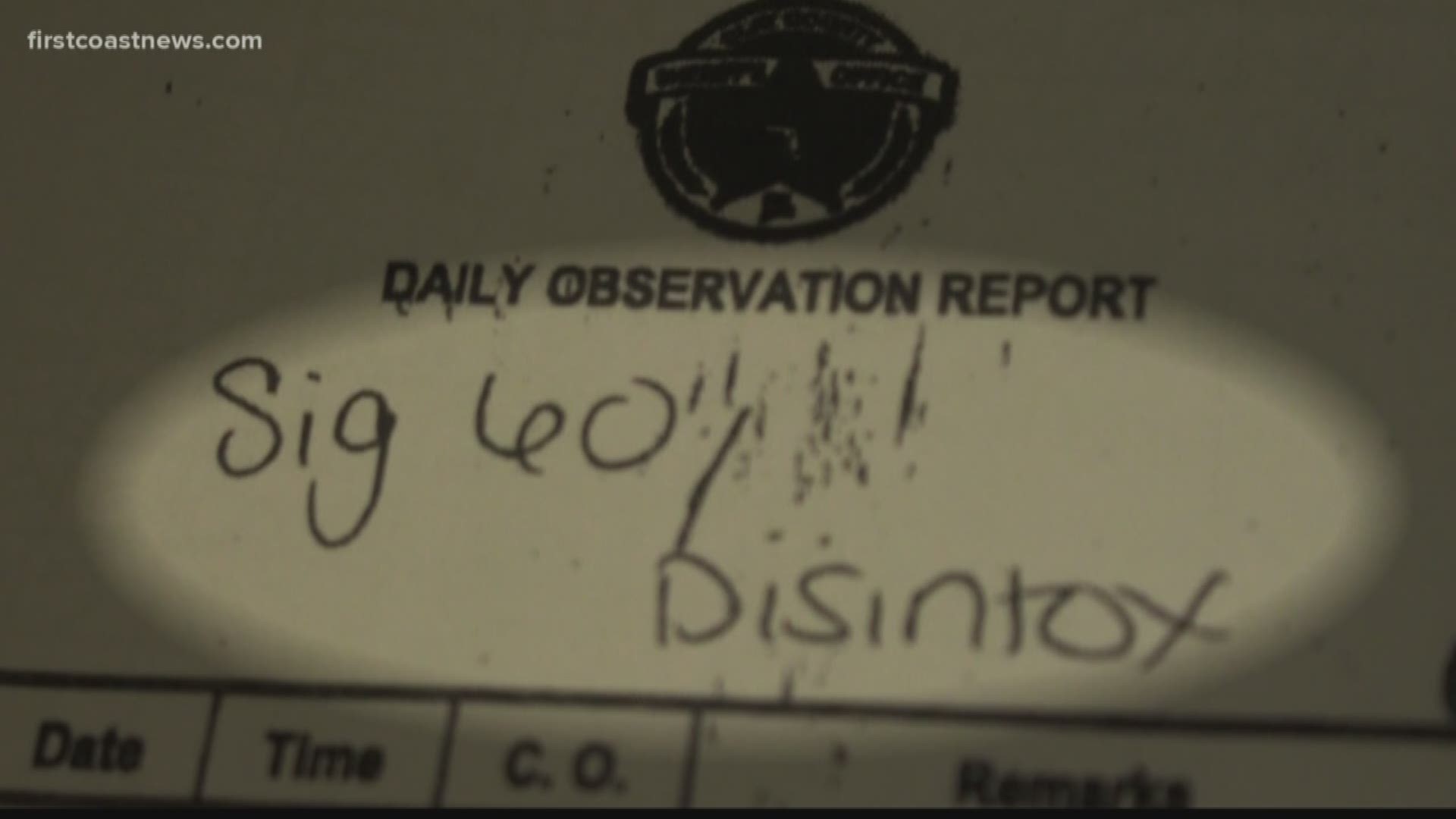Dying in jail. It sounds like a terrible way to leave this world.
Dying in jail, in agony, is what witnesses say happened to 35-year-old Michelle Bewley last March less than 33 hours after she was booked.
The Clay County Sheriff’s Office says its employees acted appropriately based on existing policies.
After an investigation by the Florida Department of Law Enforcement, the jail made changes to those policies, but they were not a result of Bewley’s death.
“She screamed all day and that night, she passed away,” former inmate Brittany Wink said. “She was screaming in pain, you can tell they were like pain screams.”
Wink was in adjacent cell F2 the night Bewley died.
The Orange Park mother was arrested January of 2019 on charges of stealing jewelry, makeup and clothes from a Clay County Belk Department Store. Bewley bond was surrendered on March 4 and she was taken back to the Clay County Jail.


According to a later investigation, when she was booked, she was loud, aggressive and crying uncontrollably.
She was placed on suicide and “disintox” watch, short for disorderly intoxication, a recognition that she was on some kind of intoxicant. According to jail protocol, that meant a deputy was required to check on her every 15 minutes. Logs show that happened. But she did not begin getting medication for her withdrawal symptoms until 20 hours after she was booked.
She was initially given Pepto-Bismol for nausea and Ativan for anxiety. After she vomited the medication, nurses gave her an injection of Ativan.
They did the same thing four hours later. They told FDLE investigators Bewley’s vital signs were good but noted she was cold, grunting and moving around too much to let them listen to her lungs.
Nursing staff tried to reach the on-call doctor, but he did not call back.
According to the jail’s rules, an inmate is supposed to be taken to the hospital if showing signs of withdrawal. A nurse told FDLE investigators she did not think Bewley’s symptoms were severe enough. So Bewley was left in her cell.
Four hours later, a deputy shook her shoulder. She told investigators he thought he saw her foot move but couldn’t be sure and didn’t check any further.
Logs show staff checked on her every 15 minutes for the next two hours. Their records indicate Bewley was asleep.
At 8:20 pm, staff found her in her cell unresponsive.
Emergency crews said when they arrived, it appeared Bewley had been dead for hours.
“I get a call at 3 o'clock in the morning saying we found your daughter deceased in a jail cell,” Bewley’s father Steven Mollohan said.
Mollohan says the last time he talked to his daughter was a few days before she was booked into the jail.
“I sent her some money, and she said, 'I love you dad' I said 'I love you Michelle,' that was the last thing I remembered,” Mollohan said. “It turned my world upside down, my only kid was dead. They were supposed to be looking after her."
Nobody tracks withdrawal deaths in jail, but a report by the national sheriff’s association estimates as much as a quarter of inmates are addicted to opioids.
Dr. Raymond Pomm, chief medical officer of Gateway Community Services specializes in treating opioid addiction. He says the kind of medicine the jail provided is not effective for someone experiencing withdrawal symptoms.
“Ativan is not going to interact in a way to worsen her symptoms, it just won’t treat symptoms effectively enough,” Pomm said.
A medical examiners report says Bewley’s manner of death was natural, the cause being hypertensive heart disease, but listed chronic drug abuse and opiate withdrawal as contributing factors. Both fentanyl and cocaine were found in her system.
“Not that the jail giving Ativan would make it worse, as much as giving her other drugs would’ve given her the best chance to survive,” Pomm added.
The Clay County Sheriff’s Office stated in October the jail and medical staff responded to the needs and treatment of Bewley appropriately.
Attorney’s for Bewley’s family say they are planning to file suit challenging the quality of her care and the fact that 911 was not called until it was too late.
“They could’ve taken her to the emergency room…They didn’t think she was that bad off,” Mollohan said. “It’s like a nightmare, how could people treat another human that way and not even care about her?”
RELATED: Death of Clay County inmate prompts change in housing for inmates with specific medical needs
The Clay County Sheriff’s Office declined our request for an interview and would only answer questions in writing.
We asked if their protocol for treating inmates experiencing withdrawal have changed since her death. They said no. They also said no employees were disciplined.
However, they did say that although there were no deficiencies in the FDLE’s report, the jail now houses medical needs inmates in a medical housing unit where they are overseen by nursing staff and deputies.
The sheriff’s office says those changes were made after Bewley’s death, but not because of it.
If you know someone who might be experiencing opiate withdrawal, Pomm recommends calling 911 if they are experiencing withdrawal symptoms.
Gateway Community Services where Pomm works offers addiction treatment for those without insurance. They can be reached at (904) 387-4661.
Pomm recommends Narcan can help a person who may be suffering from an overdose. He says there are ongoing efforts to make Narcan free city-wide.
The Substance Abuse and Mental Health Services Administration’s 24/7 hotline for free, confidential treatment referral is 1-800-662-HELP (4357).



